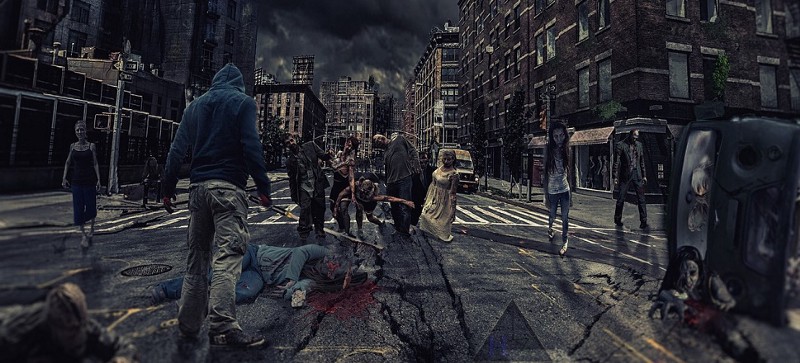By Brian Toohey
This the Preface from Brian Toohey’s latest book Secret: The Making of Australia’s Security State.
Step by step, a succession of new laws and policies have provided the building blocks for Australia to become a country in which secretive officials and ministers wield unprecedented levels of peacetime power. Secrecy, ignorance and fear are being used to deprive Australians of basic liberties and increase the risk of being dragged into a devastating war that could escalate into a full-scale nuclear catastrophe.
As a measure of just how far Australia has changed in recent decades, there are now seventy-five new laws to deal with terrorists who murder someone. Terrorists murdered people in earlier eras, but special laws were not considered necessary to cover those crimes.
Secret shows how the tough provisions of these new laws have been extended to areas not remotely connected to terrorism.
The national security juggernaut has reached the point where Australia is now chained to the chariot wheels of the Pentagon at a time when America has become an increasingly dangerous ally. The US-run bases in Australia secretly lock the nation into participating in the Pentagon’s plans for ‘full spectrum’ warfare ranging from outer space to the ocean depths.
Australia’s leaders have let the US control so many critical components of the nation’s weapons systems that it would not be possible for Australia to defend itself, for example, in a future conflict with Indonesia against America’s wishes.
No major political party is offering to restore the values of an earlier era in which habeas corpus prevailed; the onus of proof was on the prosecution; the accused was allowed to see the evidence relied on by the Crown; and Australian Security Intelligence Organisation officials could not legally kidnap people or raid a lawyer’s offices and seize documents in a commercial case directly involving the government on the other side.
No major party seems bothered by the use of new surveillance technology that allows governments to detect contact between journalists and their sources, effectively denying whistleblowers the opportunity to reveal abuses of power and criminal behaviour.
The past was by no means a golden era. A dean of medicine at Melbourne University in the 1960s advised the Defence Department on how to kill people with chemical and biological weapons. Labor governments in the 1980s fell for the fairytale that the US-run Pine Gap base in Central Australia was all about arms control.
State-enforced secrecy in the name of national security increasingly covers up war crimes, phoney intelligence, abuses of power, incompetence, folly and hugely wasteful spending.
Too often new laws make it legal for governments to take actions that would be illegal if done by corporations or individuals, including breaking and entering, assault, electronic eavesdropping, and stealing computer hard drives.
Few deny there can be a legitimate role for government secrecy. For example, there is usually little justification for revealing the names of informers working for the police and intelligence agencies, or for publicising plans for lawful wartime operations such as the Normandy landing.
But just as secrecy enabled the churches to conceal child sex abuse and the corporate sector to suppress evidence about the harmful effects of tobacco, asbestos, pesticides, pharmaceuticals, pollution, tax evasion and fraud, so too has secrecy encouraged governments to demolish long standing freedoms and deny the public’s right to know what is being done in its name.
Court suppression orders mock the notion that justice must be seen to be done.
I hope Secret provides a modest counter-narrative to the official accounts of Australia at war and the role of its intelligence services and the foreign-run bases.
Although the book challenges some of the assumptions underpinning the mainstream interpretation of Australia’s recent history, I am indebted to the outstanding work done by many historians, commentators and journalists.
Secret draws in part on my fifty years as a journalist and, briefly, a political staff member. A posting to Washington gave an appreciation of the best preface xv and worst aspects of the American political system and the importance of its constitutional protection of free speech.
Like many other journalists, my goal is to let people know more about what governments do in their name, subject to the usual constraints of time and resources.
Over the years, massive efforts have been made to discover the sources of journalists’ revelations about government actions, information about which ought to have been publicly available. Governments have made repeated attempts in the courts to discover the sources and suppress publication.
Along with other journalists, I have been taken to court a number of times over such matters. In my case, and in most others’, the courts didn’t find that publication harmed national security, and no sources were unmasked.
Today’s generation of journalists have a much tougher job.
Governments have introduced new laws making it a criminal offence to receive a wide range of information.
The June 2018 Espionage Act provides a glimpse of the future where it will be an offence to receive ‘information of any kind, whether true or false and whether in a material form or not, and includes (a) an opinion; and (b) a report of a conversation’.
George Orwell could never have dreamt that one up.
This is the Preface of Secret: The Making of Australia’s Security State, Published in A Sense of Place Magazine with the kind permission of the author.
TODAY’S FEATURED BOOKS:



2 Pingbacks